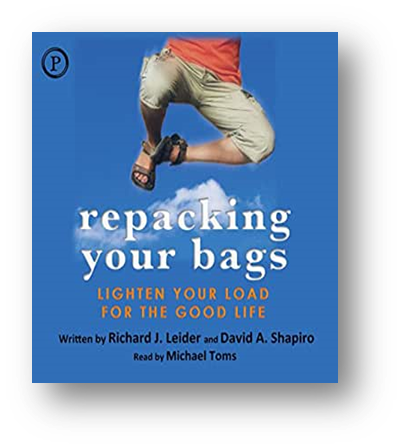Holistic Habits by Cheryl A. Mothes, Ph.D. Natural Health Nutrition Counselor
Content is a daily radio
script from my KHIS radio spot - tune in at 6:15 (CST) every morning to Justin
and Meredith’s morning show on 89.9 FM.
Why are whole plant foods so good for us? Much of the benefit may be mediated by our gut microbiome and the only factor that has been empirically shown to be important is a diet with prebiotics like fiber and resistant starch, only found in one place in abundance: whole plant foods. Intake of dietary fiber is tragically low in our country because of the Standard American Diet. Such a low-fiber diet provides insufficient food for our gut microbes, starving us of all the wonderful things they produce for us, and a key driver of our microbiome depletion which is causing the rampant increase of chronic diseases that now plague us. It's Meatless Monday and only plants have fiber, and all plants have fiber – go get 'em!
We evolved getting perhaps a hundred grams of fiber a day. How do you get even close to that? A cup of fruit may only have about three grams, and a cup of vegetables, five grams. Why so little? Because fruits and vegetables are 80 to 90 percent water. So, we go to the "drier" plant foods to really scale it up––like beans, at 15 grams, or intact grains like barley, over 30 grams per cup. But many people are avoiding common grains like wheat barley and rye due to gluten. If you have a condition like celiac disease, then you absolutely must avoid gluten, but if not, the downsides of zero gluten include the potential for nutritional deficiencies, but there are also toxic compounds - the accumulation of heavy metals in people on gluten-free diets. Those following a gluten-free diet had significantly increased blood mercury levels and more arsenic flowing through their systems, likely due to increased rice consumption, because rice is a major ingredient in gluten-free foods. The conclusion is, unless you have celiac disease, following a gluten-free diet starves your microbiome, so whatever diet you choose for whatever reason, make sure you’re getting enough fiber.
What we learned from the tobacco experience, is how powerfully profits can motivate, “even at the cost of millions of lives and unspeakable suffering.” Tobacco is one of our great public health victories. The share of adults who smoke declined from 42 percent in 1965 down to just 15 percent by 2016. Thanks to the decline, cigarettes now only kill about a half million Americans every year, whereas our diet now kills tens of thousands more. Currently, the leading cause of death in America is the American diet. It may be no coincidence that three of the most cost-effective policy interventions against obesity seem to be taken straight from the tobacco wars: (1) taxes on unhealthy products; (2) front-of-pack labeling; and (3) a restriction of advertising to children. A penny-per-ounce tax on sugar-sweetened beverages could bring in more than a billion dollars a year in states like Texas and California. Stay tuned to learn more on this tomorrow and have a wonderful Wednesday everyone!
A 10 percent tax on fattening foods on a national level could yield half a trillion dollars over 10 years. A systematic review of the
available evidence suggests that dietary financial incentives and disincentives
work. The cheaper you make fruits and vegetables; the more people say they’d
buy. And the more you tax unhealthy foods, the lower consumption drops. But wouldn’t such a tax disproportionately
affect the poor? Yes, we would expect them to benefit the most! It’s like
cigarette taxes. South Africa’s largest
private health insurer started offering up to 25 percent cash back on healthy
food purchases to hundreds of thousands of households, up to the U.S.
equivalent of $799 per month. Why would they give money away? Because it
apparently works—increasing consumption of fruits and vegetables and whole
grains, while at the same time decreasing the consumption of foods high in
added sugar, salt, and fat, including processed meats and fast food. Cool beans! 😊
It's Fix-it Friday and here is some Buffalo Brussels that helps your heart and every part of you because of the power of cruciferous veggies!
Ingredients:
1/4 Cup nutritional yeast
1 tsp hot sauce, like sriracha
2 Tbsp balsamic vinegar
3 Tbsp water
20 brussels sprouts, halved.
Instructions:
Preheat oven to 400 degrees.
Line a sheet pan with parchment paper.
In a medium bowl, stir together the nutritional yeast, hot sauce, vinegar,
and water. Add the brussels sprouts to
the bowl and stir until coated, then spread on the prepared pan. Bake 25 to 30 minutes or until nicely
browned.
From the Archives:
We all know that spinach and kale are good for us, and we also know that the more variety we have in our diets, the better it is for our gut, AND the more micronutrients like vitamins, minerals, and antioxidants we consume. Every week when you do your shopping, add a different green. Try arugula, for example – it’s packed with vitamin A and folate, and you can eat it raw or cooked. Collard greens are known to reduce cholesterol and have cancer-fighting properties because they are rich in many vitamins and calcium. Chard is so great that it’s almost two veggies in one! And turnip greens are a calcium superhero! Add a little of these great greens to your smoothies, cook with them, or toss them in salads to boost your nutrition on this marvelous Meatless Monday!
Last week we talked a lot about stress – and much of it can be work-related, with high levels of burnout being reported. The good news is that burnout can be turned around, which is good for us both mentally and physically. The first step is to admit what’s going on – that we’re on a hamster wheel and in "survival mode". Then we can ask ourselves: What can I change, avoid, amend, and accept about this? And make a list of the answers. Also, what can you "reframe" by viewing it as a challenge, a learning opportunity, a way to help others, or as having a higher purpose? It may be time for you to downshift, as the Blue Zone populations do, to live longer and live stronger. Have a terrific Tuesday everyone!
We spent some time yesterday talking about burnout and ways to assess our “pace and patterns” and better deal with them. Here are some additional tips from experts. First, find points of control – feeling helpless is common with burnout, but there is always something we have control over, and our body is a great starting point – sleep, exercise, and diet habits are all things we can control, and even little steps matter. Second, enhance your attitude of gratitude. High-performance athletes and firefighters have found gratitude to be significantly protective against burnout – pausing to savor uplifting moments is a powerful energy booster. Lastly, take micro-breaks at work, and we’ll talk more about those tomorrow! Have a wonderful Wednesday everyone!Yesterday we mentioned the importance of taking micro-breaks at work to help deal with burnout. It turns out that these short, voluntary, and impromptu respites like stretching, doing puzzles, chatting with friends, or pausing for a great snack help us overcome fatigue and engage with our work better. Let’s face it – some days we’re tired before we even get started – but studies show that these microbreaks helped already-fatigued employees maintain high energy levels, which helped them feel more in control and on top of things. The breaks help us manage our energy resources throughout the day. The more fun they are, the more we look forward to them and the more energizing they are. So, plan some fun 5 or 10-minute activities for your day, and have a great one everyone!
There’s
new research that shows drinking coffee AND tea reduces our risk of dementia
and strokes – yes by 28% and 32% respectively compared to those who drink
neither. Coffee and tea have overlapping
nutrients and it appears that combined, they have a protective role for
us. Coffee is an acquired taste, and
both are easy to “corrupt” nutritionally by adding milk, creamer, sugar, or
sugar substitutes. Ease into coffee
consumption and if you already drink one or both, work on reducing the
additives that increase calories, fat, and unhealthy chemicals. Have a fantastic Friday everyone!











